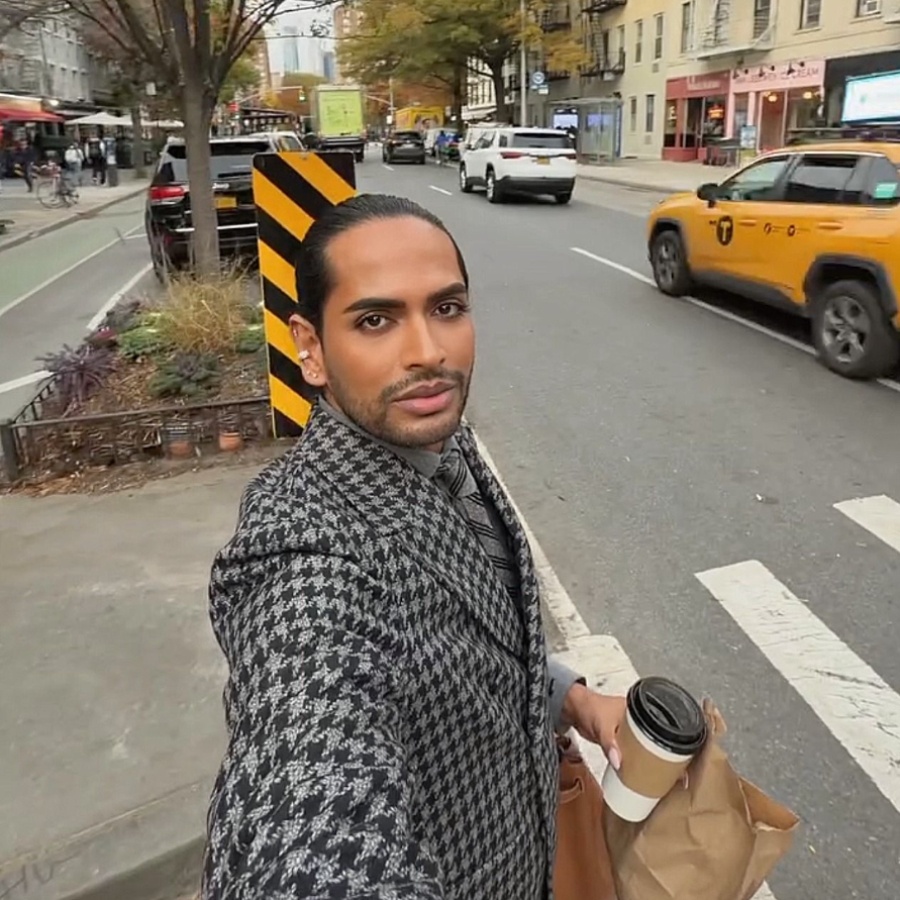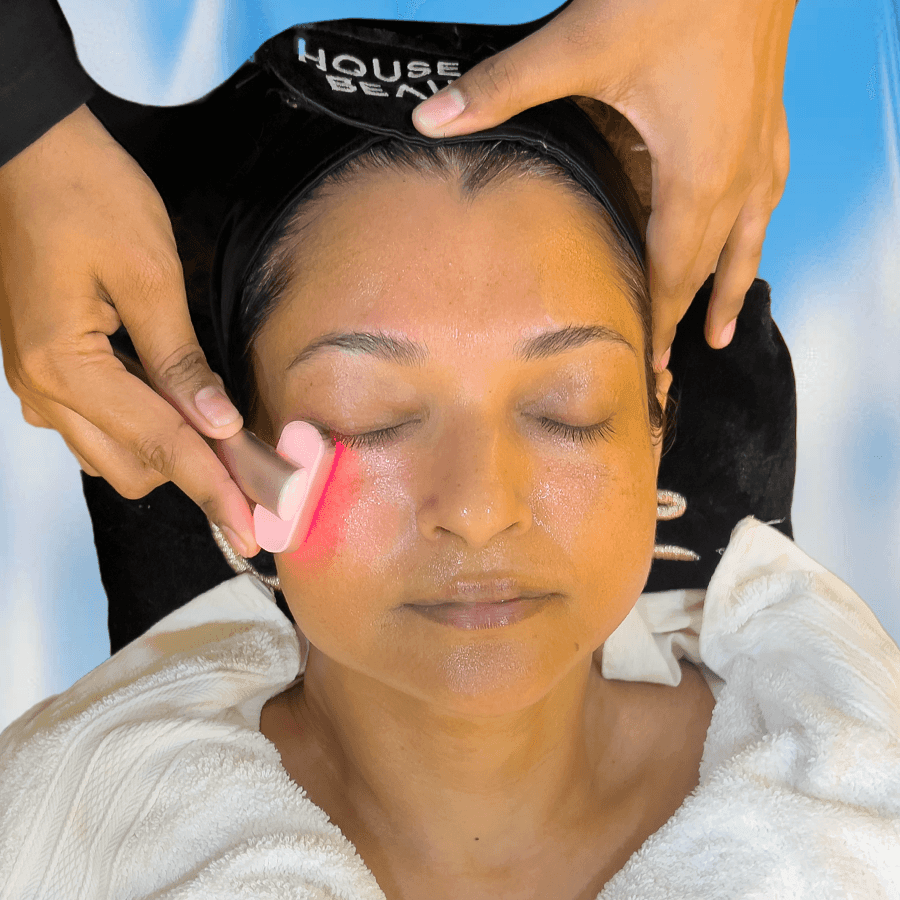“You know, we need to stop idolising Korean skin,” declares Mira Kapoor, not a little wearily. “It is that way because a) genetics, and b) Koreans live in a very cold, dry country. So their pores are never dilated, and that makes you feel that their skin is poreless. If you went to a cold country, the same thing would happen to your pores as well.”
It’s a wet, wet, wet June day, and Mira Kapoor—29, partner to Bollywood actor Shahid Kapoor, mother of two children, and now entrepreneur—is draped across a wooden chair against a coloured glass window. Mumbai’s monsoon, with its spiralling humidity levels, has arrived with a vengeance. While many of us in this Bandra café are battling cowlicks and oily T-zones, Kapoor’s facade is unfazed. The pores on her face, which, elementary biology tells us, must exist despite the beauty industry’s mighty efforts to erase them, do not reveal themselves today.
I’ve just asked her how she navigates the overload of beauty information we have at our fingertips now, the many skincare trends that clog our Instagram feeds—from lymphatic node massages to refrigerated boiled rice water to achieve that elusive Korean glass skin. And Kapoor, who has been trawling the depths of the internet to find her own best practices since she was at least 20, has some thoughts.
“Because the climate in Korea is so dry,” Kapoor continues professorially, “they need to have those many steps to add that hydration. That’s why they need sheet masks. And if you apply the same thing without context, in India, where it is so hot and humid most of the time, it doesn’t work. I think we need to figure out and celebrate Indian skin—tone, type, and texture—and find the right routines for ourselves.”










